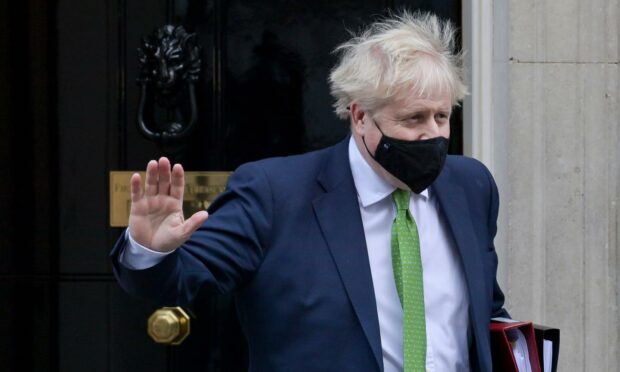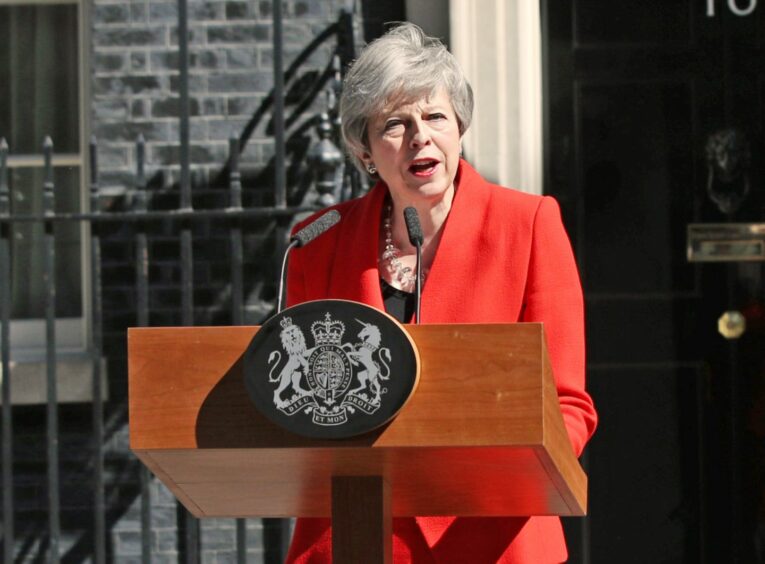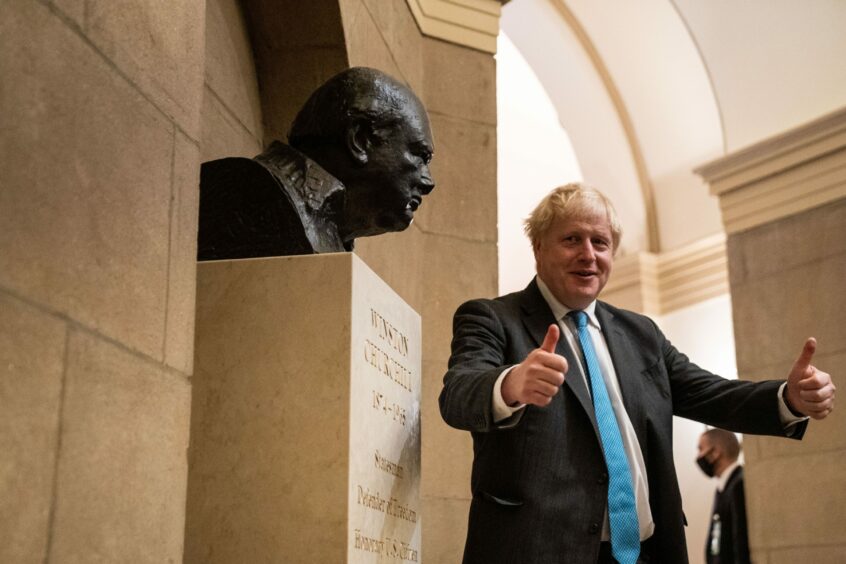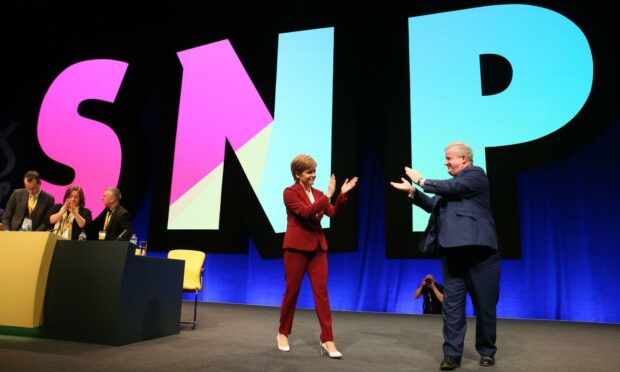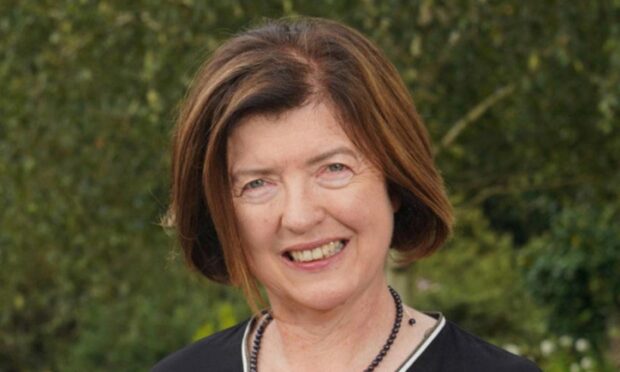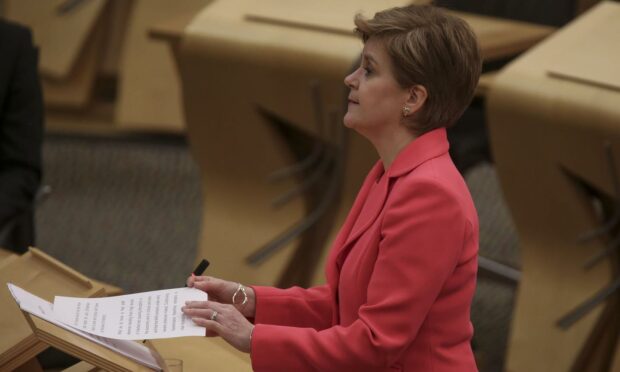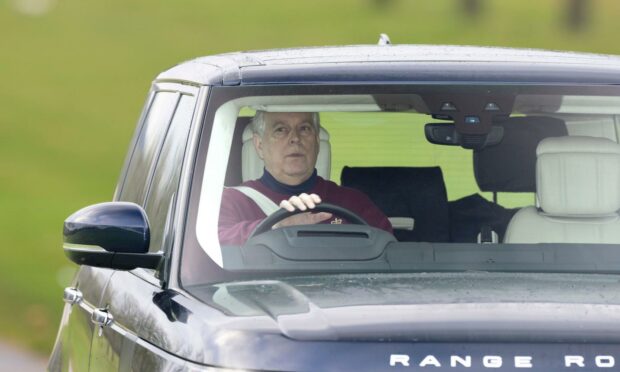When in doubt about England, turn to Orwell.
“A family with the wrong members in control – that, perhaps is as near as one can come to describing England in a phrase.”
David Cameron, Theresa May and Boris Johnson have all proven to be the wrong people: the weakest sequence of leaders in the history of the Tory party. Unfortunately for Britain, they’ve been the worst series of prime ministers, too.
During their shared 12 years, the union has never looked so fractured, Britain’s global status so confused and the “mother of parliaments” so befuddled.
And, now, what began in the Downing Street garden between David Cameron and Nick Clegg, announcing the coalition of 2010, looks likely to come to an end after lockdown-breaking parties among the same rose bushes.

In the case of May and Johnson, it was disaster foretold. Particularly so for Johnson, who made no effort to hide his unsuitability for the job. As I write, he’s still in office, but surely not for long.
Brexit: a tragedy in three acts
It’s tempting to see Brexit as the curse upon all three PMs.
It was the ghost of the Tory past which eventually showed Cameron the door. As the ghoul of Tory present, it ripped apart May’s premiership. And, having got it “done”, it’s provided little benefit to Johnson’s political future.
A Dickensian saga of misguided ambition.
Get. Brexit. Done. pic.twitter.com/9Jz8g2hOdF
— Otto English (@Otto_English) January 18, 2022
And, yet, the real divide was about the purpose and future of England.
Quitting the EU gave an immediate high – Johnson won by a landslide, dislodging Labour from its north of England domain – but it proved insubstantial. Europe was not the problem, but the structural faults of Albion.
North-south may be the real divide
Levelling up had been discussed by all three prime ministers.
Theresa May said on entering Number 10 in 2016 that “David [Cameron]’s true legacy is not about the economy but about social justice”, which surprised a lot of people suffering under austerity, before she revealed herself a warrior for the same cause.
She spoke “against the burning injustice that, if you’re born poor, you will die on average nine years earlier than others”, sounding like Neil Kinnock in his pomp.
In this vein, Johnson was accused of not being a real Tory with his tax hike for social care and high spending.
Those excluded from wealth and social progress were encouraged to blame migrants and the EU.
Johnson’s premiership has shown it’s nothing to do with Brussels. The fault lies in the wealth gap between north and south.
‘Them’ is not simply Boris and his boozy buddies, but a wider sense that government by south east isn’t working
The “northern powerhouse” talk began under Cameron. Johnson’s failure to keep northern MPs onside will trigger his downfall.
This is not America, where political division is visceral. There will be no storming of the capitol(s). But, tolerance with the entitled south is growing strained.
🚨EXCLUSIVE
Number 10 held two boozy parties the night before the Queen mourned Prince Philip alone.
Staff drank and at points danced until the early hours of the night of April 16.
Hours later, the Queen went to a socially-distanced funeral for Philip. https://t.co/sWrFcOrplE
— Tony Diver (@Tony_Diver) January 13, 2022
Johnson’s parties are attacked as “one rule for them, one for the rest of us”. “Them” is not simply Boris and his boozy buddies, but a wider sense that government by south-east isn’t working.
Visions of Churchill weren’t matched in reality
George Orwell was writing in 1941, during the war, when Churchill was prime minister.
Johnson fancied himself a modern day version of Winston: a dodgy career, erratic leadership, but fundamentally good for the country. And, not so long ago, it was being briefed that Boris hoped for 10 years in Downing Street.
What emerged, to no great surprise, was a simulacrum of Churchill; a loose impression from a man who had no sense of duty but a powerful entitlement.
Boris got as far as he did because he was an invented Englishman. A Bertie Wooster, or Billy Bunter, for the age – a performance that recalled a simpler time.
Just as Orwell confused England with Britain, so it’s easy to confuse the last dozen years as being about the UK, when in truth it’s really about England
In the context of Brexit, voters in the leave areas reported how they liked his lack of polish, his apparently sincere dedication to the people’s wishes.
Brexit was about returning to some mythical England, as represented by Boris’s confection of ticks and gaffes. Just as Orwell confused England with Britain, so it’s easy to confuse the last dozen years as being about the UK, when in truth it’s really about England.
Scotland and Wales wait to see where England will go, while Northern Ireland mulls London’s betrayal over Brexit.
A story that seemed to about the Celtic nations is about the Anglo Saxon identity crisis.
The next PM must get to grips with issues of England
Whoever succeeds Johnson has to address the England question. The answer almost certainly lies in larger budgets.
It is plainly unjust that spending per head is higher in all three devolved nations than in the north of England. Correcting that may create a more equal, quasi-federal UK.
Alternatively, being fair to the north of England may irritate the other parts of the UK, accelerating the end of the union.
Whatever the long-term effect, it is still the most pressing matter for Britain.
As to the Johnson premiership, it will be remembered for its silliness and deceit. Unlike Churchill – a war hero – Johnson will be remembered as a peace-time traitor. A man who betrayed the nation, who broke his own rules as the Queen was in mourning.
His run of luck is ending in ignominy and shame. But where’s the news in that?
He was always the wrong man in control.
Award-winning columnist Alex Bell has worked for news titles including the BBC, The Observer and The Herald, as well as writing a book about global water resources. He was also head of policy to Alex Salmond’s government
